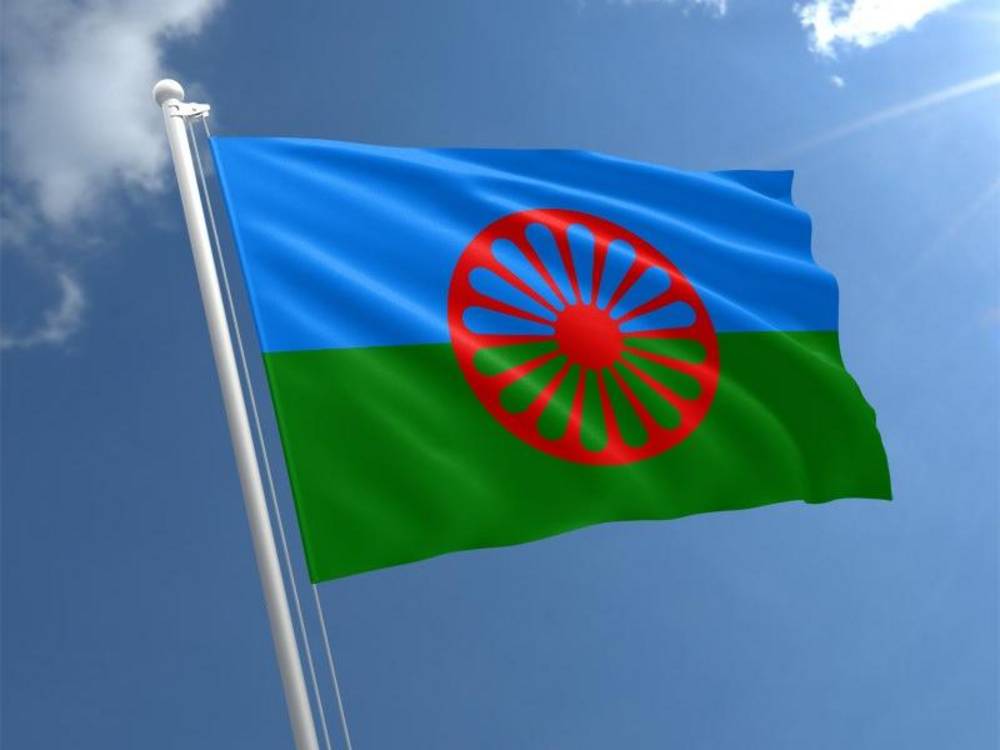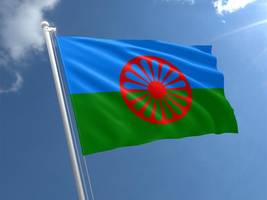Upon International Romani Day observed on 8 April, Human Rights Ombudsman Peter Svetina emphasised that his recommendations for the improvement of the situation in which representatives of the Roma population live, now extending over several years, can be realised fairly simply. All it takes is good will and a commitment to cooperation between the state, local communities, and representatives of the Roma community. For many years, recommendations from the institutions of the Ombudsman have focused on access to fresh water, toilets, and electricity, legal and communal arrangement of settlements, adoption of detailed municipality field programmes, and collection of data about the equality, inclusion, and success in schools and employment. “It is high time that those responsible checked them off their lists as done,” believes the Ombudsman.
Approximately 12,000 Roma people are thought to live in Slovenia, which can be discerned from the research of the Social Protection Institute, since according to the current legislation Slovenian institutions must not keep records about the number of people based on their ethnicity. “The Slovenian Constitution ensures the Roma people equality with other citizens, while in reality they are still pushed to the margins and excluded from society,” the Ombudsman asserts. Only by cooperation is it possible to achieve long-term progress, improvement of the situation, and a decrease in human rights and fundamental freedoms violations affecting this community.
Article 25 of the Universal Declaration of Human Rights from 1948 acknowledges the right of every individual “to a standard of living adequate for the health and well-being of himself and of his family, including food, clothing, housing and medical care and necessary social services”. The majority of the Roma in south-eastern Slovenia live in separate Roma settlements, often without basic living conditions, including access to drinking water, toilets, and electricity, which is what the Ombudsman brought attention to in his Special Report. The lack of water and toilets affects especially Roma women who take care of the hygiene of children and have difficulty finding privacy for their hygiene and sanitary needs. The lack of legal and communal arrangement of Roma settlements endangers the realisation of human and special rights of the Roma community and its representatives on the one hand and also the realisation of human rights and fundamental freedoms of the rest of the population living there on the other – hence, both can justifiably feel hurt in their dignity, regarding their personality rights, property right, equality before the law, and also regarding trust in the legal state as such. The Ombudsman insists that the (currently) Ministry of Natural Resources and Spatial Planning should prepare the text of a special (intervention) act which will enable Roma people living in illegal settlements actual and effective execution of their human rights, i.e. (at least temporary) access to drinking water, toilets, and electricity and find systematic solutions for those cases where this is not possible.
The Ombudsman regularly brings attention to the close connection between children’s living conditions and school success and (later) employability. The Ombudsman’s inquiry about the schooling of Roma children in the first wave of the pandemic revealed that numerous Roma children face deprivation and special challenges and are in a distinctly poor and comparably poorer position than other pupils, not only during the time of remote learning measures during the pandemic but also in general.
The Ombudsman also draws attention to the worrying data about the health situation of Roma people. A study by the National Institute of Public Health (NIJZ) from 2018 showed that on average Roma people live almost 20 years less than the general population in Slovenia. The research also revealed that the mortality rate of Roma children aged one to five is seven times higher in comparison to children in the entire population of the same age, while the hospitalisation rate due to various conditions connected to pregnancy, birth, and the postpartum period is no less than 16-times higher among Roma women than women from the general population. The Roma also have a higher hospitalisation rate due to respiratory diseases, infectious diseases and diseases connected to parasites, and due to circulatory and gastrointestinal diseases. The NIJZ determined that in general, the health of Roma people is affected primarily by socio-economic factors, such as inappropriate living conditions, low rate of general and health literacy, multi-generational unemployment, poverty, multiple deprivations, and social exclusion.
In its 2021 baseline report on Slovenia, GREVIO, the independent expert body responsible for monitoring the implementation of the Council of Europe Convention on Preventing and Combating Violence against Women and Domestic Violence (the so-called Istanbul Convention) by the Parties, wrote that “despite the special criminal provision on forced marriages, concerns are expressed regarding its enforcement by law enforcement authorities”. It also states that “there seems to be a tendency to treat forced marriage as a cultural practice, widespread especially among the Roma community, which does not necessarily involve the responsibility of the state to act. This may explain why there have been no convictions for forced marriage in Slovenia since the introduction of the criminal offence in 2015”. Another reason is the reluctance of girls from Roma communities to report forced marriages, mainly due to fear and lack of information about available legal remedies.
In 2022, the Ombudsman inquired with all centres for social work whether they were aware of any cases of forced marriage in 2021. They replied that they had not. Some, however, pointed out the phenomenon of so-called early marriage or escape of minors to harmful environments, extramarital unions of minors, and pregnancies of minor girls, which occur mainly in Roma communities. The Ombudsman recommended that the competent authorities pay special attention to identifying exposure to sexual violence, domestic violence, forced marriage or other traditional practices harmful to women, and pay particular attention to whether Roma women seek help.
“Many Roma today, not as a result of the systemic efforts of society, but rather of the partial efforts of their families, are, despite all the above, already highly educated and come together in the Roma Academic Club. Their knowledge and experience in solving problems should not be neglected, even where there is no solution yet,” believes the Ombudsman who calls on the bodies responsible to find the will and finally close the open questions.

